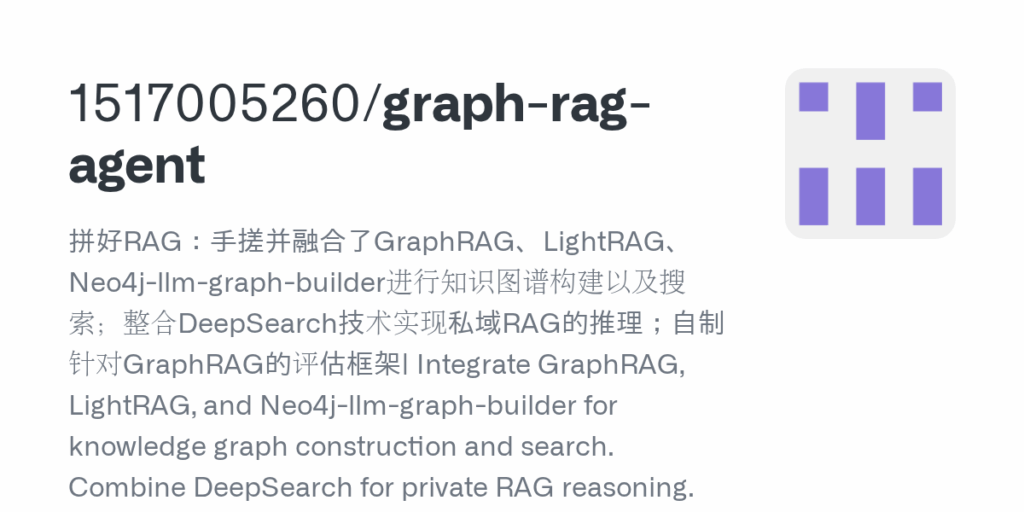graph rag agent
Basic Information
graph-rag-agent is a developer-focused project that integrates GraphRAG, LightRAG and neo4j-llm-graph-builder to enable knowledge graph construction, graph-backed search, and retrieval-augmented generation (RAG) workflows. The repository targets building and searching knowledge graphs with Neo4j and combining graph retrieval results with language model inference. It integrates DeepSearch techniques to enable private-domain RAG inference and includes a custom evaluation framework designed specifically for assessing GraphRAG-style systems. The project is intended for researchers and engineers who want to experiment with, reproduce, or extend graph-centric RAG approaches and to evaluate retrieval and generation performance within controlled or private datasets.








